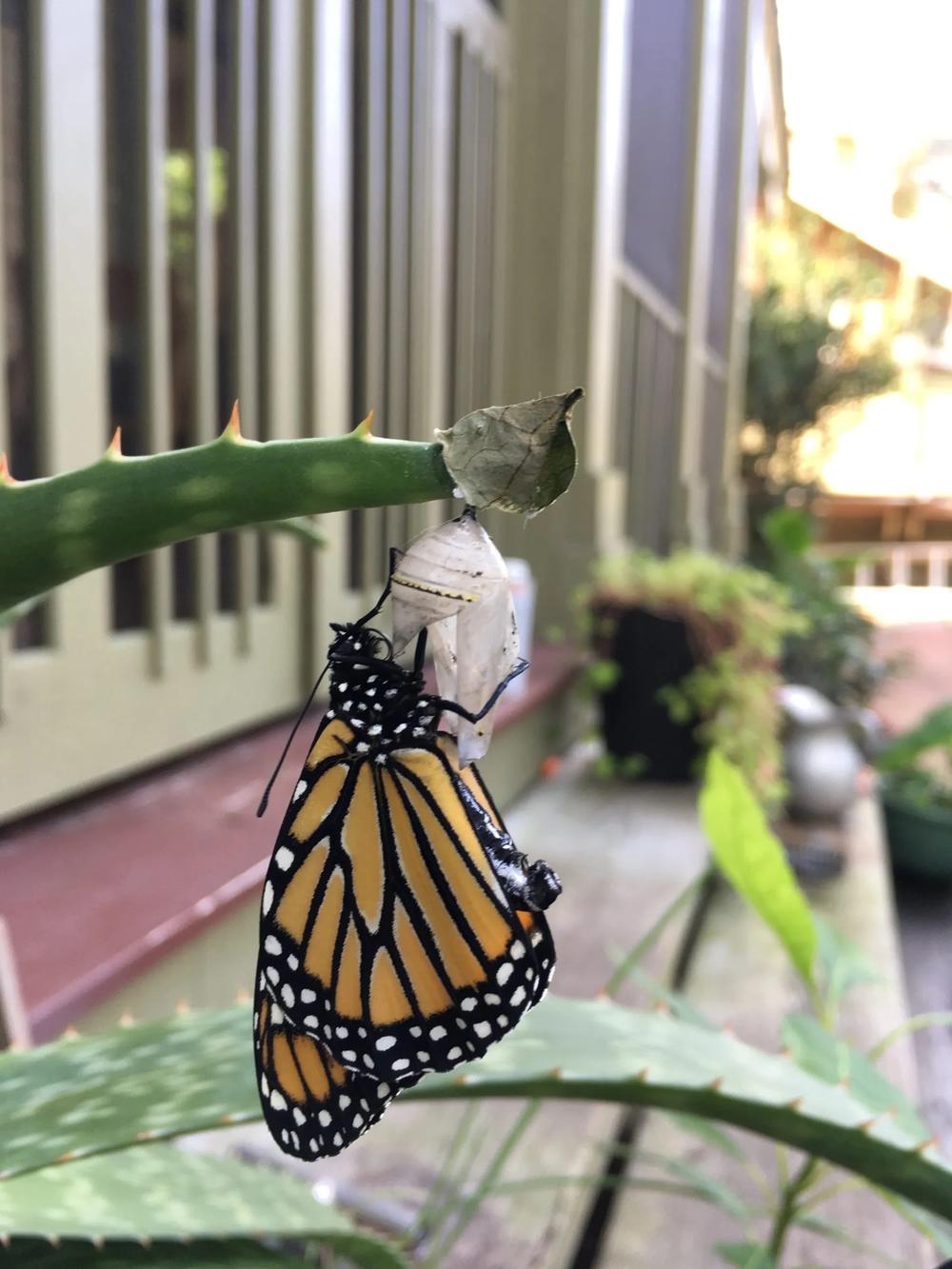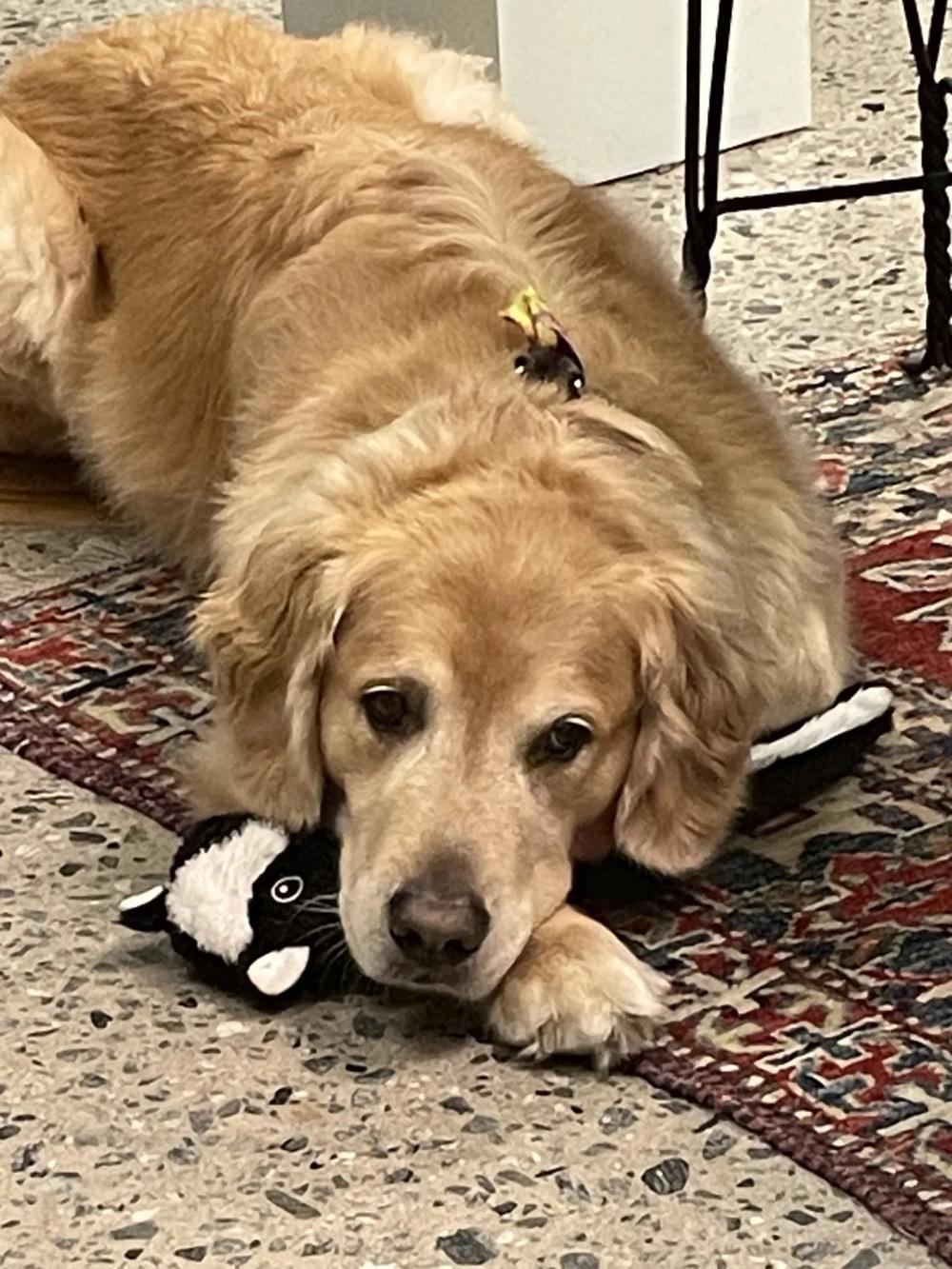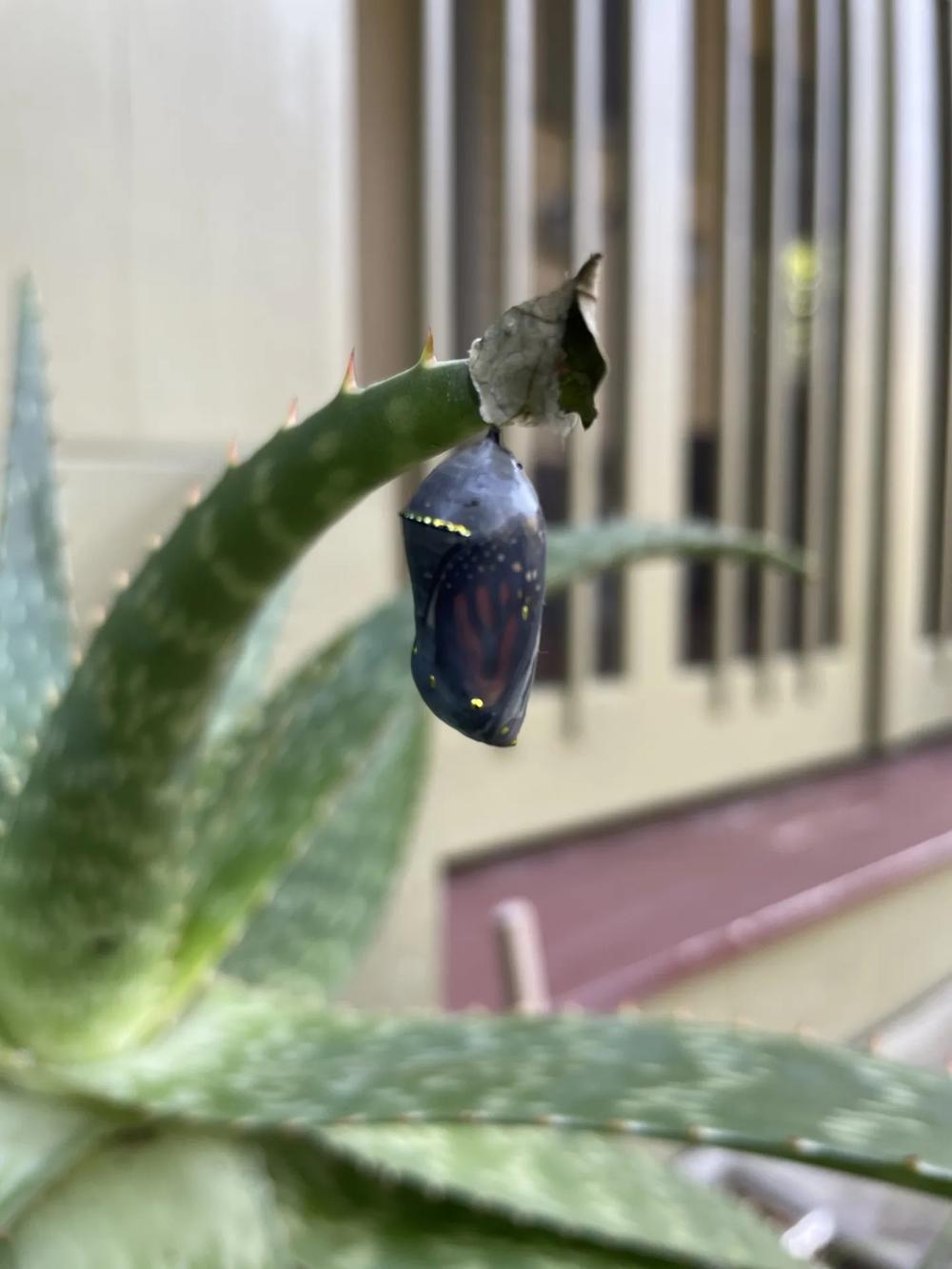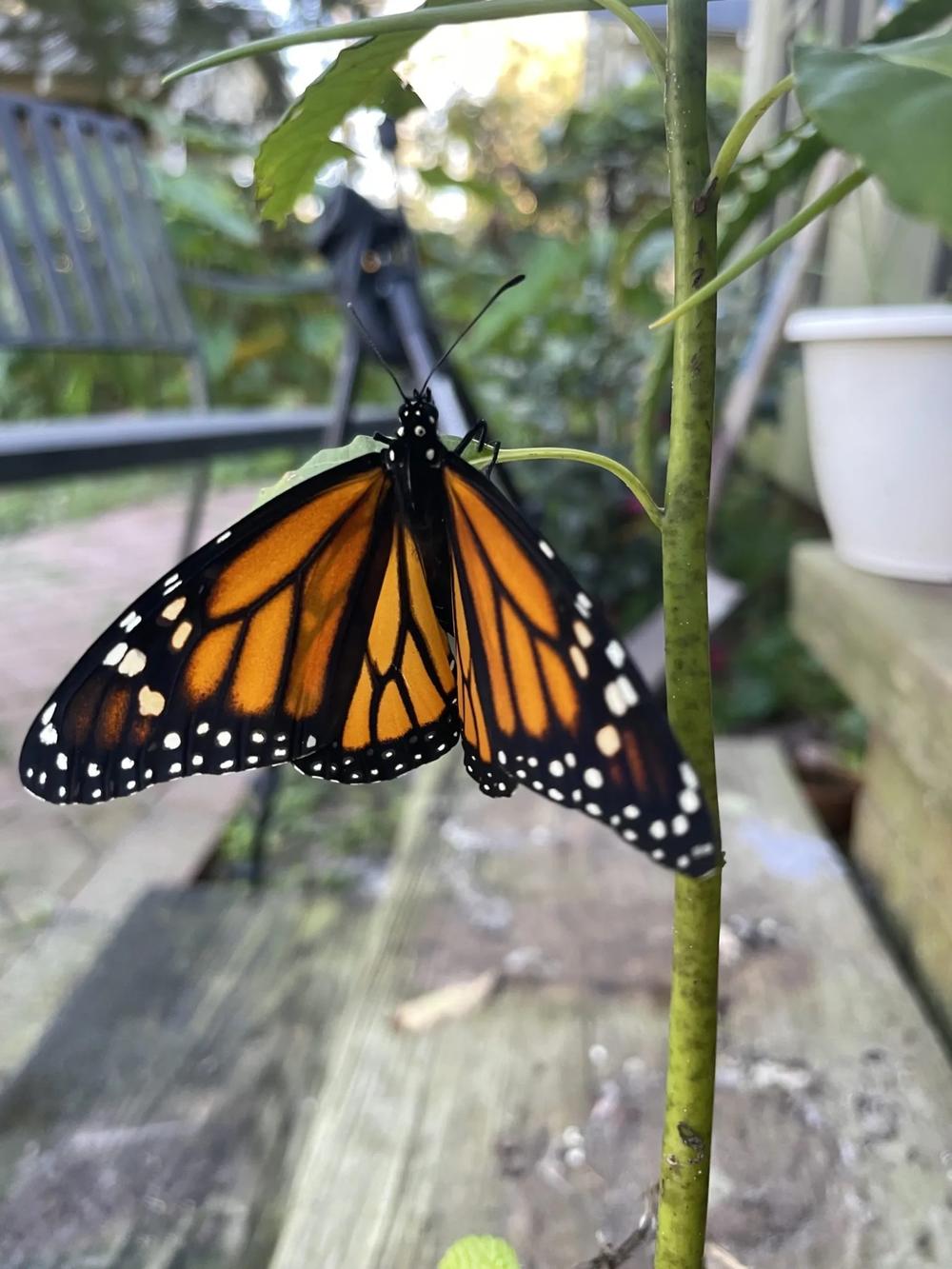
Section Branding
Header Content
Aided by super glue, a butterfly emerges: Milkweed attracted monarchs to our yard. One needed a little help make it to adulthood
Primary Content

Mary Landers, The Current
This is a story about a dog bath, a fallen butterfly chrysalis and weirdly, super glue.

About 10 days ago our golden retriever, Apollo, was in desperate, stinky need of a bath. But as my husband tied him to a table in the backyard, he noticed the leash had knocked a bright green chrysalis to the ground.
The sight of a chrysalis, while still exciting, had become more common at our house over the last year. We planted milkweed plants in our Savannah yard to attract monarch butterflies, and it worked. We noticed monarchs visiting them frequently. We saw lots of their black-white-and-yellow-striped caterpillars all summer and fall, too. Eventually, we began to find the elegant gold-dotted green chrysalises attached by tiny black stems to the garage, the siding of the house, and the sweet bay bush.
But we never saw one on the ground before. I picked it up gently and thought about how best to imitate nature. It needed to hang, but how? My first instinct was super glue.
A quick Google searched revealed it had worked for others. I headed to a potted aloe where I watched a monarch emerge from its chrysalis last year. One squeeze of Loctite super glue later and the little green gem was hanging like a tree ornament. I secured it using a torn bit of leaf from another plant to avoid gluing my thumb to the project.

On Sunday the green-shelled chrysalis turned nearly black, a sign the butterfly was getting ready to emerge.
On Monday I could see orange wings through the now translucent cover of the chrysalis. I set up my iPhone on a tripod in front of the chrysalis and hit “time lapse.” The resulting 29-second video shows what happened over about seven minutes of real time.
After it emerged, the butterfly hung out on the aloe for several more hours, pumping fluid from her abdomen into her wings and allowing them to harden. I say “her” because the lack of a black spot on her lower wings indicates she’s a female. She crawled up a nearby potted avocado plant. Around dusk, while I wasn’t looking, she flew away.

This story comes to GPB through a reporting partnership with The Current.

